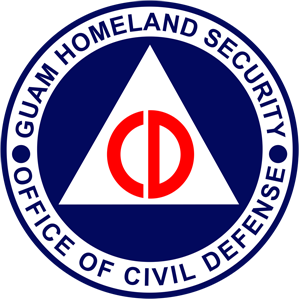The Offices of Guam Homeland Security and Civil Defense (GHS/OCD) along with the Mariana Regional Fusion Center (MRFC), continue to receive reports of local telephone numbers receiving suspicious calls and messages or reported phishing scams from local, domestic and unusual or unexpected international area codes.
Most recently, reports identified Guam residents receiving calls claiming they have won large sums of money from Publisher’s Clearing House and Samsung, encouraging residents to drive somewhere to meet and sign documents in order to receive money, encouraging residents to purchase gift cards and send them the code, and using the Office of the Governor and Guam Homeland Security/Office of Civil Defense by name in order to convince the residents that they are credible.
Remain vigilant and continue to follow these tips provided by the Federal Trade Commission to recognize and avoid scams:
- Do not give your personal or financial information in response to a request that you didn’t expect. Honest organizations won’t call, email, or text to ask for your personal information, like your Social Security, bank account, or credit card numbers.
- If you get an email or text message from a company you do business with and you think it’s real, it’s still best not to click on any links. Instead, contact them using a website you know is trustworthy. Or look up their phone number. Don’t call a number they gave you or the number from your caller ID.
- Spot imposters. Scammers may pose as a government official, family member, charity, or a company you do business with. Do not send money or give out personal information in response to an unexpected request- whether it comes as a text, phone call, or an email.
- Local numbers may be spoofed. Scammers use technology (‘spoofing’) to fake caller ID information to cause confusion to the end user. If someone calls asking for money or personal information, hang up. Conduct an online search utilizing legitimate websites or directly contact the institution.
- Do online searches. Search a company or product name with words like “review,” “complaint” or “scam.” Or search a phrase describing your situation, like “Social Security telephone call.” You can even search for phone numbers to see if other people have reported them as scams.
- Do not pay upfront for a promise. Scammers may ask individuals to pay in advance for things like debt relief, credit and loan offers, mortgage assistance, or a job. They may even promise that someone has won a prize, but first request taxes or fees. When individuals provide money up front, the money usually disappears.
- Consider how you pay. Credit cards offer a significant fraud protection built in, but some payment methods do not. Wiring money through services like Western Union or MoneyGram is risky because it is nearly impossible to get your money back. Government agencies and honest companies do not require you to use these payment methods.
- Talk to someone. Before providing money or personal information, talk to someone you trust. Scam artists want you to make decisions in a hurry. They might even threaten you. Slow down, check out the story, conduct an online search, consult an expert – or contact the Mariana Regional Fusion Center to ask if there are other reports of similar calls which may be fraudulent in nature.
The MRFC analyzes data and trends to identify scams and fraudulent patterns. Your report may help law enforcement identify the people behind illegal calls. If you would like to make a report, try to write down details so that you can provide them when you report the incident, including the day and time you were contacted. Report the number that appears on your caller ID — even if you think it might be fake — and number you are told to call back, names, any email address, mailing addresses, routing numbers, or specific instructions you were given.
The community is advised to report any suspicious activity relating to the subject to the MRFC at (671) 475-0400 or via email at mrfc@ghs.guam.gov, following the Department of Homeland Security’s campaign, “If You See Something, Say Something.” Information that is provided to the MRFC will be recorded and properly disseminated to all pertinent authorities.







